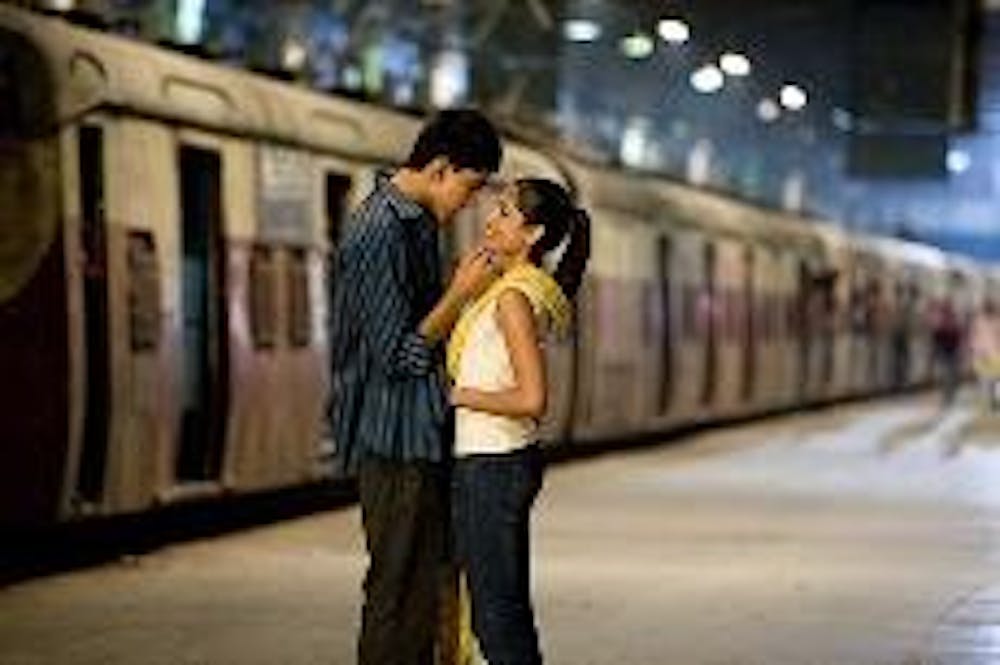"Slumdog Millionaire," directed by Danny Boyle and written by Simon Beaufoy, is a warm, sun-scorched examination of the harsh living conditions of India and the power of pop culture as a means to escape that brutal existence.
The titular slumdog, Jamal (Dev Patel), is a teenager from the slums of Mumbai, who finds himself on the cusp of winning 20 million rupees on an Indian version of "Who Wants to Be a Millionaire?" But before he can answer the final question, he's abducted and tortured by authorities who find it impossible that an uneducated kid from the streets could have succeeded without cheating. The contestant then exposes his harsh life story, defending himself against those accusations and explaining that his knowledge has been gained from life experience, rather than the pages of an almanac.
Violence seems to surround this unfortunate boy, and Jamal and his brother, Salim (Madhur Mittal), go through a hellish childhood existence laced with abuse, death, petty theft and prostitution. However, the camera never truly lingers, capturing all sorts of nastiness with a sunny, almost blasé exuberance. Anthony Dod Mantle's cinematography captures the warmth of the city, marked by bright oranges and yellows. We feel charged when the boys partake in criminal activities because Boyle's enthusiasm possesses every shot. Even though the subject matter is fairly hard to swallow, Boyle just seems to be having too much fun to bother dwelling on the undeniable suffering of the characters.
This same type of breeziness informed "Trainspotting" (still his best film), but in "Slumdog Millionaire," this attitude is used to portray not drugs but pop culture as a vehicle of escape from a depressing reality. To achieve this, Boyle uses a flashback structure to eliminate dwelling on the nastiness. Throughout the film there are numerous flashback sequences that detail rough, brutal episodes in Jamal's life. In one scene, Salim shoots a man who abuses children, but soon after, it cuts back to the game show, where Jamal answers a question about guns.
That might sound a bit corny on paper, but on screen, it works. It's a great way to break the tension, but it also directly involves the audience in its larger thematic ambitions. When things get too intense, the film switches back to the game show, and when Boyle focuses on the show for extended periods of time, we almost forget about the larger narrative. The game show is not just an escape for the characters - it's an escape for the audience. The cinema itself is already an escape, so this is a rather imposing demonstration of just how effective shows like "Who Wants to Be a Millionaire?" can be. For all of the harrowing flashbacks, there was not a scene that gripped the audience more than when Jamal was trying to answer the final question. In a movie that details all sorts of incredible real life stories, that is extraordinary.
The film is filled with violence but also radiates warmth. In a time of increased global uncertainties, it's refreshing to see such affirmation of life, regardless of how tainted it may be. Boyle makes sure to expose much of the nastiness of the world, and in some ways, the audience may leave unsure whether or not the film is really just a veiled criticism of mindless pop culture. Regardless, "Slumdog Millionaire" is one of the best films of 2008, and it could be the sweetest portrait of poverty and death that audiences have seen in ages.
You can reach this writer at thescene@theeagleonline.com.





